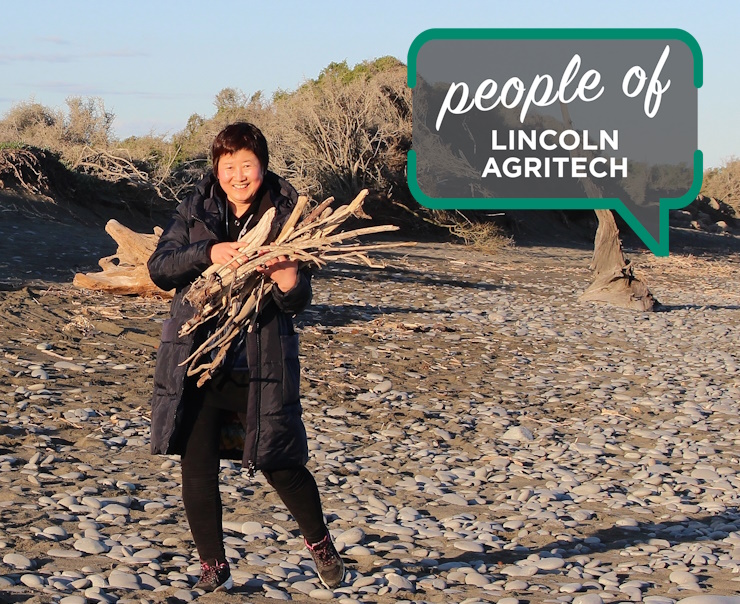Jin-Hua Li
When research scientist Jin-Hua Li was a child she didn’t know what scientists did, but thought it seemed interesting.

I was in year 5 in my primary school, and one day our teacher asked every child what we wanted to do when we grew up. Most children said they wanted to be a teacher, but I said I wanted to be a scientist. I knew what kind of work teachers do, but didn’t know at all what kind of work scientists do, and I could see teachers every day, but had never seen a scientist. I was just curious about what scientists looked like, and what they did every day.
This year when I visited Mitimiti Marae with some of my colleagues, some people asked us: “Who is the scientist?” I could see from some children’s eyes that they had met real scientists, and knew that scientists were human, and science was amazing.
My entrance grades for university were not enough for my favourite, medical science, so I chose plant protection. I didn’t like it very much in the first year, and I nearly failed a course. I didn’t feel good about it because my mum always told me whatever I did, I had to get the job done properly even I didn’t like it. So I started studying harder.
Gradually, I started liking plant protection. I very much like observing microbes under a microscope. I always looked forward to using microscopes. After my bachelor’s degree, I did a master’s degree in plant pathology. And then I was offered a teaching assistant position by Gansu Agricultural University, and then promoted a couple of times. I got my PhD in 2007. I worked there for 14 years.
I felt that I wanted to move to another place. I targeted Australia, Canada and New Zealand – countries where it is easier to migrate to. I studied in Australia for 1½ years and feel it is very hot in summer. And it is very cold in Canada in winter, so I moved to New Zealand.
My first job in New Zealand was as a technician in the Bio-Protection Research Centre, at Lincoln University. I worked there for 5½ years and then got a postdoc job with Lincoln Agritech. Last year, I was promoted to research scientist.
So I am a scientist now, still curious about what other scientists do in their everyday life, just curious about lots of things.
What does your job involve?
My job now involves lab work, office work, nursery work, and fieldwork – including sometimes working in a forest. Mainly I work on beneficial micro-organisms that fix nitrogen, or make phosphate soluble in soil, or help to control some plant pathogens.
I spend most of my time in a laboratory using microscopes to see what microbes look like or detect if special microorganisms are in the sample. To do this I extract DNA, then amplify bits of the DNA by making millions to billions of copies, so that I can detect the micro-organism.
We then do nursery trials, applying the micro-organisms to plants in partially controlled condition, to see if it works as we expected. Then we need to test it in in a real environment. For example, we set up pine tree trials in Tokoroa to test our Trichoderma strains for promoting growth in pine trees.
I also analyse results of my experiment, write papers, and write proposals to apply for new funding.
I enjoy learning new knowledge, skills, techniques, technology, and enjoy solving problems from my work.
How do you explain your job to your family?
My husband is a plant pathologist too, which makes it easier to explain to him if I am stuck with my work. It is a bonus that sometimes I can get some good ideas from him.
My son is studying civil engineering at the University of Canterbury and is not interested in biology. Quite often he gets lost when I talk about biology to him. But having my son was the best thing that ever happened to me.
My curiosity motivates me to work on science. Love for and from my family drives me to have a healthy life, to support them, try to keep happy and healthy every day, which is rewarding because when I feel healthy and loved, I just enjoy my research work so much.
If I could change one thing about the world, it would be to find an environmentally friendly solution to combat plant diseases, so we could reduce agrochemical use.


